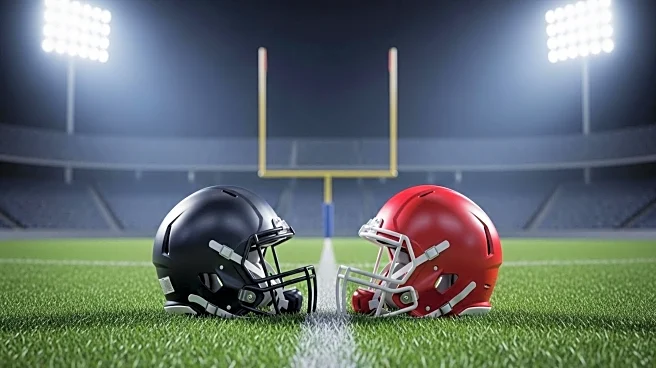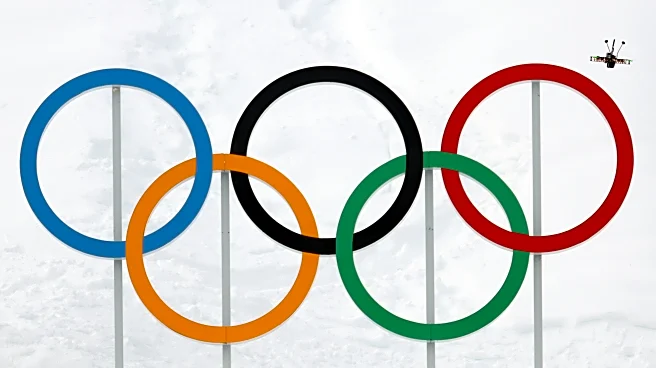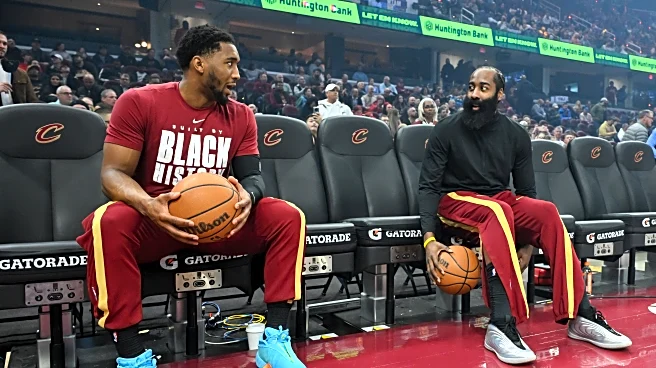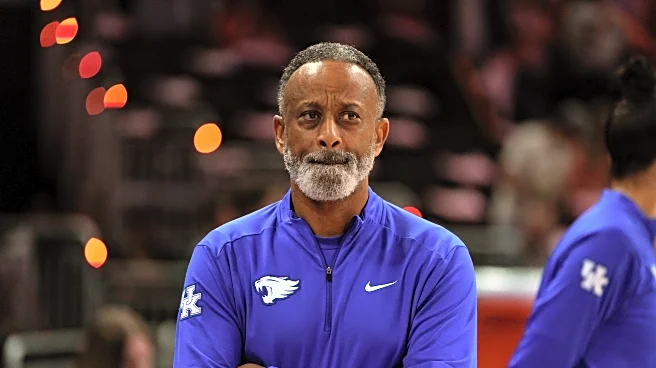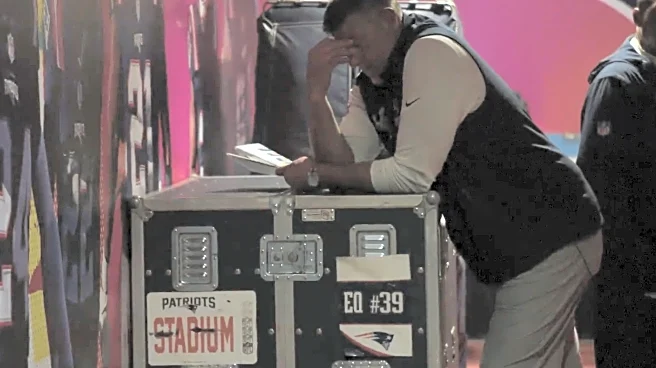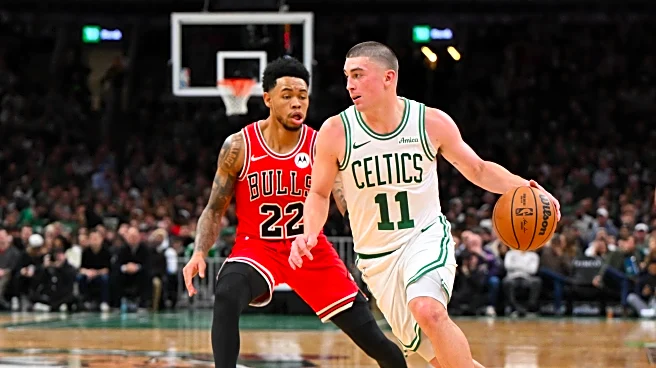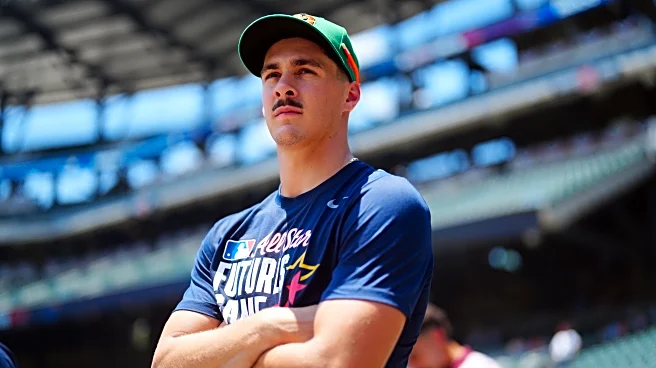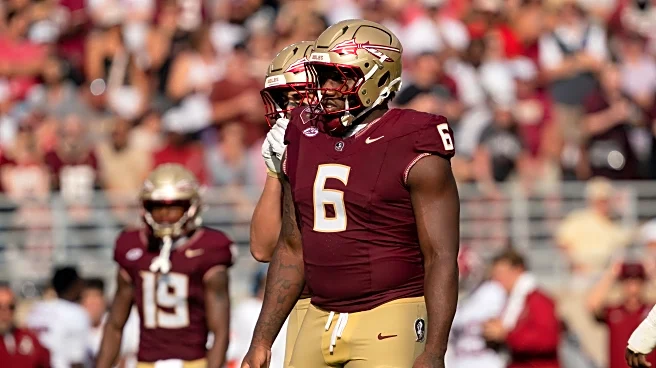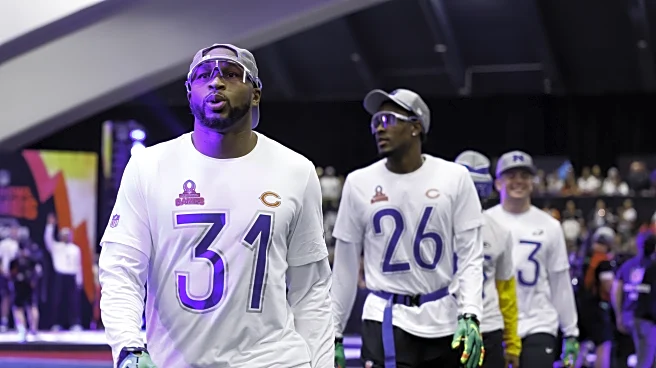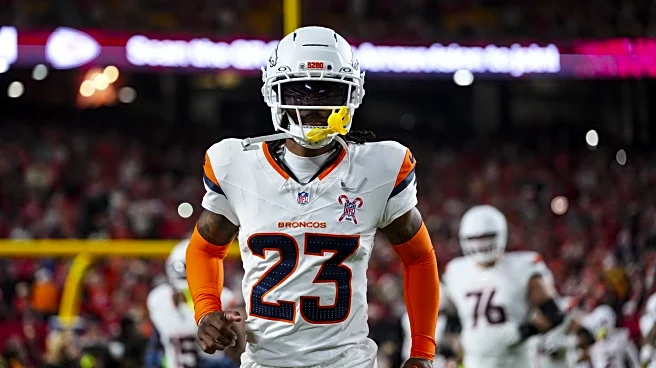What is the story about?
What's Happening?
Utah is set to face UCLA in a significant football matchup at the Rose Bowl. Both teams are introducing transfer quarterbacks, with Utah's Devon Dampier coming from New Mexico and UCLA's Niko Iamaleava from Tennessee. Dampier, known for his dual-threat capabilities, aims to improve his touchdown-to-interception ratio under new offensive coordinator Jason Beck. Meanwhile, Iamaleava, a five-star recruit, is adjusting to UCLA's system after a season with Tennessee. Utah's defense, which performed well last season, is expected to challenge Iamaleava, who struggled against top defenses in the SEC. The game is anticipated to be high-scoring, with Utah favored by 5.5 points.
Why It's Important?
This matchup is crucial for both teams as they integrate new quarterbacks into their systems. For Utah, Dampier's ability to adapt and perform under pressure will be key to maintaining their defensive strength and improving offensive efficiency. UCLA's Iamaleava faces the challenge of proving his worth against a strong Utah defense, which could impact his future prospects and the team's performance in the season. The outcome of this game could set the tone for both teams' seasons, influencing their standings and strategies in upcoming conference play.
What's Next?
Following the game against UCLA, Utah will travel to Seattle to face the University of Washington and begin Big 12 conference play against TCU. These games will further test the team's new offensive strategies and defensive capabilities. For UCLA, the performance of Iamaleava under the guidance of offensive coordinator Tino Sunseri will be closely watched, as it could determine the team's approach in future games and their position in the conference.
Beyond the Headlines
The introduction of transfer quarterbacks highlights the growing influence of NIL deals and player mobility in college football. Iamaleava's transfer from Tennessee due to NIL negotiations underscores the changing dynamics in player recruitment and retention. This trend could lead to more strategic moves by players seeking better financial and career opportunities, impacting team compositions and competitive balance in college sports.
